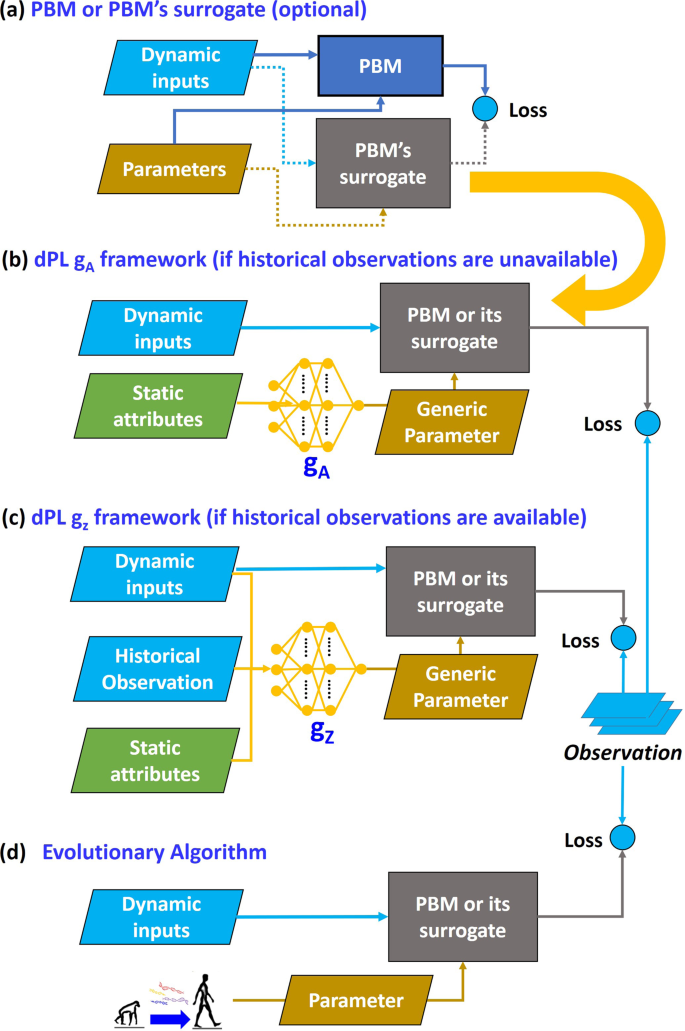\(\delta\) parameter learning¶

Code Release¶
- Codes are released at this zenodo link
Summary¶
From calibration to parameter learning: Harnessing the scaling effects of big data in geoscientific modeling for routing flows on the river network.
The behaviors and skills of models in many geosciences (e.g., hydrology and ecosystem sciences) strongly depend on spatially-varying parameters that need calibration. A well-calibrated model can reasonably propagate information from observations to unobserved variables via model physics, but traditional calibration is highly inefficient and results in non-unique solutions. Here we propose a novel differentiable parameter learning (dPL) framework that efficiently learns a global mapping between inputs (and optionally responses) and parameters. Crucially, dPL exhibits beneficial scaling curves not previously demonstrated to geoscientists: as training data increases, dPL achieves better performance, more physical coherence, and better generalizability (across space and uncalibrated variables), all with orders-of-magnitude lower computational cost. We demonstrate examples that learned from soil moisture and streamflow, where dPL drastically outperformed existing evolutionary and regionalization methods, or required only ~12.5% of the training data to achieve similar performance. The generic scheme promotes the integration of deep learning and process-based models, without mandating reimplementation.
Bibtex Citation¶
@article{Tsai_2021,
title={From calibration to parameter learning: Harnessing the scaling effects of big data in geoscientific modeling},
volume={12},
ISSN={2041-1723},
url={http://dx.doi.org/10.1038/s41467-021-26107-z},
DOI={10.1038/s41467-021-26107-z},
number={1},
journal={Nature Communications},
publisher={Springer Science and Business Media LLC},
author={Tsai, Wen-Ping and Feng, Dapeng and Pan, Ming and Beck, Hylke and Lawson, Kathryn and Yang, Yuan and Liu, Jiangtao and Shen, Chaopeng},
year={2021},
month=oct }